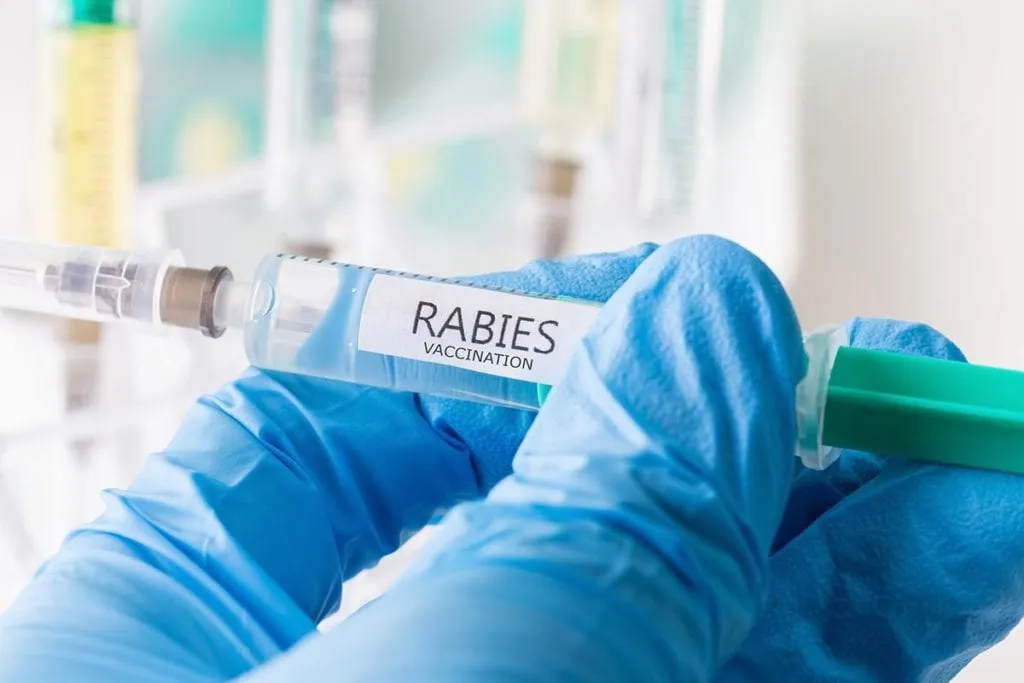Mice can be the reason for many infectious diseases, ranging from the bubonic plague to salmonella. But another common question is whether or not mice carry rabies.
And here’s what I found out –
Mice are prone to get rabies, just like every other kind of mammal.
However, it is an extremely rare possibility that a mouse may get the rabies virus without dying in the process.
The Centers for Disease Control and Prevention (CDC) have discovered that these rodents are nearly never found to have rabies.
In this article, we will discuss the signs and symptoms of rabies in mice, steps to take, etc. Let’s get started!
Table of Contents
Why Mice Don’t Usually Get Rabies
Mice do not usually get rabies. This is because they cannot survive after being bitten by a bigger rabies-infected animal.
A mouse does not get rabies automatically. In order to get rabies, a mouse must first be bitten by a rabies-infected animal. The vast majority of these are larger carnivores such as foxes, dogs, skunks, raccoons, etc.
After getting injured, it has to live long enough for the disease to spread from the wound to the brain. It takes at least a few days, if not weeks.
But a mouse cannot survive the bite of a bigger animal. Moreover, in most cases, those mice die on the spot. That is why they do not get rabies.
There are not enough reports of mice getting rabies and successfully passing the disease on to a human.
Although the possibility is low but not zero. If a mouse survives even with the injuries, it can definitely develop rabies.
So, now that you know whether mice get rabies or not, let’s know the signs of rabies in a mouse.
Signs That A Mouse Has Rabies
There are many signs that can show the presence of Rabies in a mouse. In this article, we will discuss 5 major signs of rabies in a mouse.
Paralysis
Rabies is a disease that affects the nervous system. So, mice that have been infected with it may show neurological symptoms like convulsions and paralysis.
Unsteadiness
Because the infection can impair their motor function, you can notice that their movement is unsteady. They will shake while walking.
Trouble in Swallowing
An infected mouse may have trouble swallowing and may drool excessively. All of these contribute to the typical foaming at the mouth.
Aggressiveness
Rabies can cause a mouse to behave extremely aggressively. There is a possibility that they will begin behaving in a manner that is not typical for their species.
Fearlessness
Rabies can cause mice to lose their natural fear of people. Thus making them more likely to bite when they encounter them.
All the signs discussed above are based on the signs a rabies-infected mammal would have.
However, do you know what are the symptoms you will have if you get rabies?
Symptoms Of Getting Rabies
There are several symptoms if you get rabies.
After being bitten by an infected animal, it can take a few days for the first signs of rabies to develop. Below are the five common symptoms of rabies.
Sensation On the Wound
You may initially experience tingling, prickling, or itching sensations at the wound site. The area may also have pain or numbness.
Fever and Headache

You may also experience flu-like symptoms such as fever, and headache. You will also have pains in the muscles, loss of appetite, vomiting, nausea, and fatigue.
Neurological Problem
After a few days, neurological symptoms, including muscle spasms, and paralysis will occur.
Hydrophobia
After a certain time, it will result in a fear of water or hydrophobia. It’s possible that you might be terrified at the mere sight of water.
Foaming at the Mouth
Due to the fact that saliva cannot be swallowed, you may frequently experience difficulty swallowing. This is also referred to as “foaming at the mouth.”
Do You Need A Rabies Shot If Bitten By A Mouse?

Getting vaccinated against rabies for mouse bites is not even recommended by the Centers for Disease Control and Prevention (CDC).
If you were bitten by a pet mouse, simply clean the wound thoroughly. Also, apply some disinfectant to it, and check it to ensure that it does not become infected till healed.
However, if you have been bitten by a wild mouse, you should visit your primary care physician. Follow the advice that he or she gives you. They will probably ask you to take a TT (Tetanus Toxoid) injection.
Now, let’s know what else you should do if bitten by a mouse with rabies.
What To Do If A Mouse With Rabies Bit You?
If you are sure that you have been bitten by a rabies-infected mouse, go to the hospital immediately!
First, clean the wound with iodine- or alcohol-based antiseptic, and then apply a straightforward dressing.
You must take a series of vaccinations to protect yourself against the rabies virus. The rabies immune globulin will take effect quickly and protect you from the virus.
You will receive four injections over a period of 14 days if you have never received rabies immunizations before.
If you get a fever along with shivering or pain from the wound, keep a keen eye on yourself. If this happens, tests like CBC and Lepto IgM are needed.
However, all these will rely on a number of different aspects, depending on your health condition
Final Thought!
To recap, it can be said that mice are rare carriers of rabies.
This does not happen because the transmission of rabies requires a bite. But they cannot live after getting bitten or injured by any other animal.
Furthermore, there are not enough cases to prove the fact that mice can get and carry rabies and then infect humans.
But despite this fact, they have the potential to carry rabies-like any other mammal.
So, it is suggested not to take a mouse bite carelessly. Clean and disinfect the wound area.
There are several signs and symptoms of rabies as discussed above. If you notice any of those symptoms, do not hesitate to seek medical attention.
